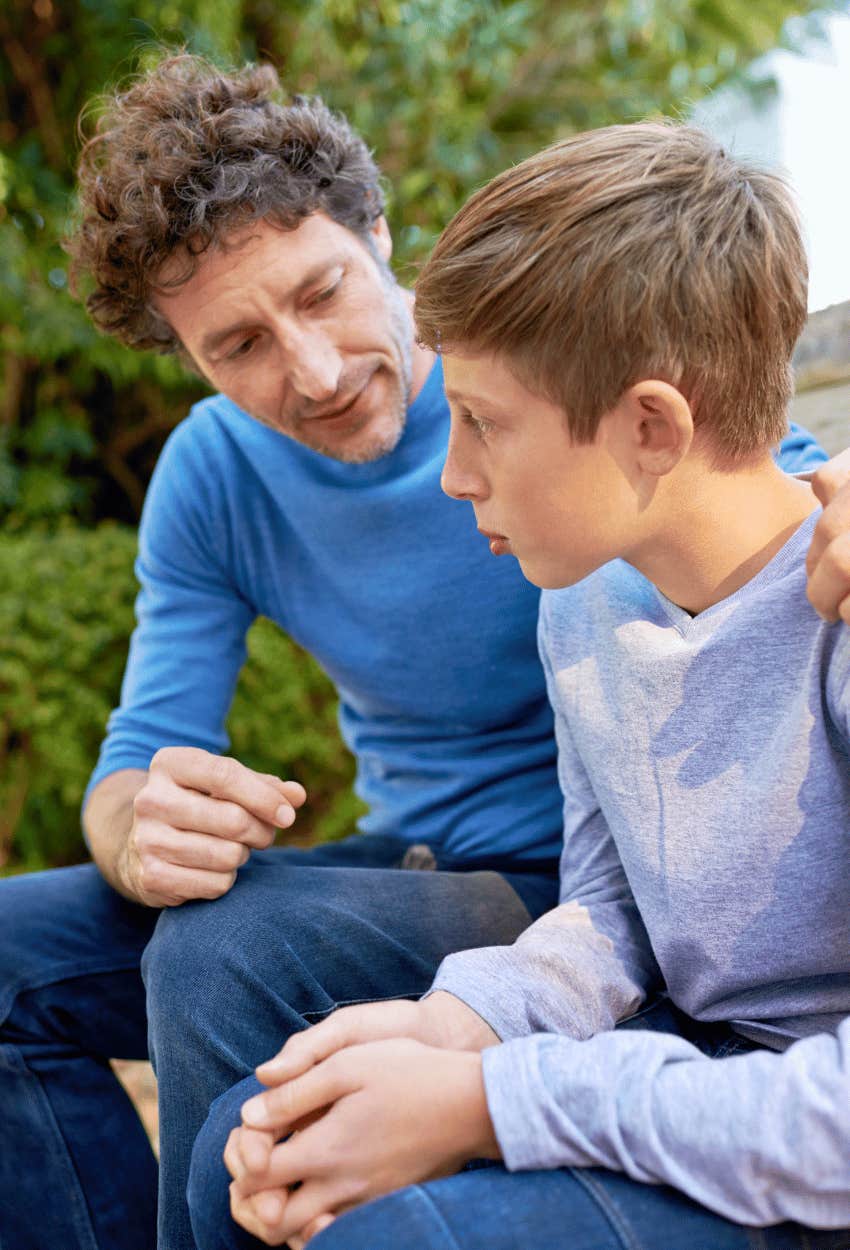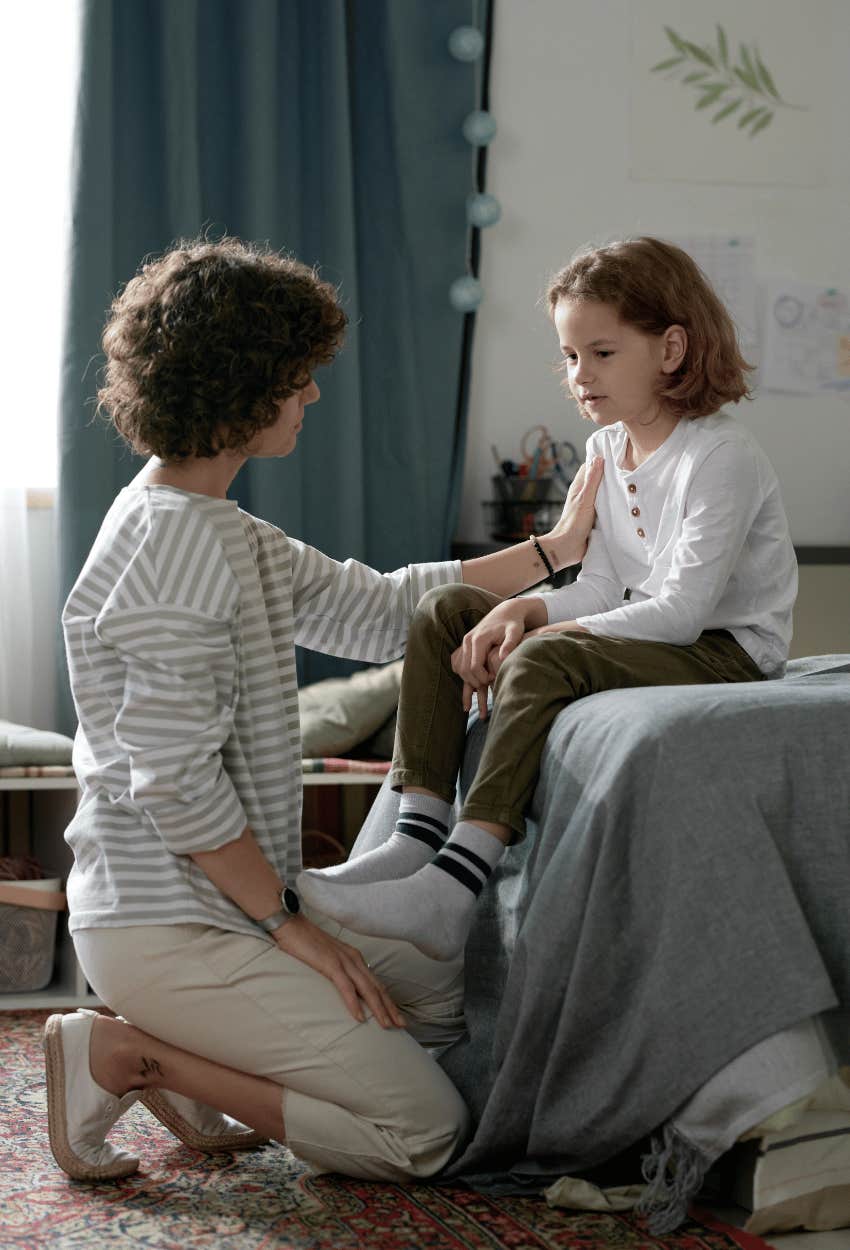Parents Who Have The Best Relationship With Their Adult Children Did These 7 Things Early On, According To A Parenting Coach
How your kids treat you as adults is a direct reflection of their childhood.
 cottonbro studio | Pexels
cottonbro studio | Pexels There is no instruction manual that can prepare you for the ups and downs of raising a tiny human into a competent and responsible adult; many parents are simply trying their best and hoping that the values they're teaching their kids will shape them into resilient individuals. However, the number one thing all parents hope for is that as their child becomes an adult, they'll still have a close bond with them.
Through every interaction and memory made, parents are building a foundation for a future relationship. It doesn't mean that relationship will be good, however. Many adult children have reservations about how they were raised, and some even go no-contact. Parenting coach Reem Raouda explained that there are seven things parents can prioritize in early childhood to ensure a strong bond and healthy relationship with their adult kids.
Here are seven things parents should do when their kids are little to ensure they have a great relationship as adults:
1. Let them know their feelings matter
 DimaBerlin | Shutterstock
DimaBerlin | Shutterstock
The one thing children want is to always feel safe and validated, especially around their parents. Nothing makes a child feel small and isolated more than being dismissed and even criticized for expressing their emotions.
"Instead of dismissing emotions, acknowledge them. To help them feel heard, say things like: 'That sounds frustrating' or 'I see you're upset.' Emotional safety isn't about fixing problems — it's about making sure they feel understood," Raouda explained.
When a child is being properly regulated, they start to associate feeling safe with the connection they have with their parents, and as they grow older, that bond will only become stronger and healthier.
2. Choose connection over control
 PeopleImages.com - Yuri A | Shutterstock
PeopleImages.com - Yuri A | Shutterstock
You simply can never use fear as a parenting tactic and expect your child to feel emotionally safe. If they're scared, they'll only associate negative feelings with being around their parents.
As they grow up, that fear will eventually turn to anger and resentment for how they were treated during their childhood in moments when they needed comfort and care.
"Parents who remain close with their children don't demand obedience. Instead, they prioritize building trust. Simple moments — laughing together, listening without judgment, showing empathy — help children feel safe," Raouda insisted. "When kids feel emotionally secure, they continue seeking your support well into adulthood."
3. Give them a voice in their own life
 Media_Photos | Shutterstock
Media_Photos | Shutterstock
While there's definitely a time and place for parents to make decisions on behalf of their kids, it's also important to have a balance between telling them what they can and cannot do and allowing them to make decisions for themselves.
"Teaching children to be independent begins in early childhood and will look different and be guided differently based on a child's age," Stephanie Irby Coard, Ph.D., associate professor of human development and family studies at the University of North Carolina Greensboro, explained to Parents. She went on to say, "Teaching kids to think for themselves means parents must gradually loosen the reins so children can gain valuable confidence and experience making self-guided decisions."
"Instead of deciding everything for them, ask 'What do you think?' or 'What feels right to you?' Let them make small, age-appropriate choices, like picking their clothes, hobbies or what to eat," Raouda suggested.
4. Own your mistakes
 Dasha Petrenko | Shutterstock
Dasha Petrenko | Shutterstock
Parents are adamant about getting respect from their kids, but that respect has to go both ways.
Nothing sticks with adult children more than knowing their parents would rather be loud and wrong than actually take the time to apologize if they've done something wrong. Whether it's a pride thing or simply a misunderstanding, refusing to own up to your mistakes can really damage a parent-child relationship.
"Apologizing teaches kids that respect goes both ways. Saying, 'I overreacted earlier, and I'm sorry' shows them that relationships aren't about power, but mutual understanding," Raouda said. "Children raised in homes where accountability is the norm don't fear making mistakes. Instead of hiding their struggles, they trust they can come to you without shame."
5. Make quality time together a habit
 pics five | Shutterstock
pics five | Shutterstock
Taking moments out of your day or week to spend quality time with your child can truly build an unbreakable bond. You can't just depend on being their parent as enough of a reason for them to feel connected. It's not just having one conversation and calling it a day, but doing activities that you both can enjoy together.
"What shapes your bond isn't just the time you spend together but how often your child feels prioritized. Sharing a meal, reading at bedtime, or simply checking in about their day strengthens the bond," Raouda pointed out. "Kids who feel valued in small ways will naturally stay close to you later in life."
6. Let them be themselves without judgment
 shurkin_son | Shutterstock
shurkin_son | Shutterstock
Parents should always maintain a safe space for their children to feel as if they can be exactly themselves without judgment. If they start to feel judged, they might close themselves off and hide their true thoughts and emotions.
Those emotional walls also don't vanish as a child gets older, but instead, they get taller and stronger.
"Helping kids accept themselves starts with how you respond to them. Instead of pointing out flaws, celebrate their uniqueness. Encouraging their interests, even when they don't align with your expectations, lets them know that you love them exactly as they are," Raouda said. "When kids grow up feeling accepted, they won't have to choose between being themselves and staying close to you."
7. Protect the relationship over being right
 Monkey Business Images | Shutterstock
Monkey Business Images | Shutterstock
"There will be moments when you and your child don't see eye to eye. If you always push to be 'right' at the cost of connection, they will learn your approval is conditional. They may comply in childhood but will distance themselves in adulthood," Raouda explained.
Instead of attempting to prove a point when your child disagrees with you or refuses to comply, it's better to indulge them and try to see things from their perspective. This way, they actually feel like they're being heard instead of dismissed just because they're the child and you're the parent.
Parenting isn't about having control; it's about treating your child as a human being separate from you. They have their own thoughts, feelings, and views on certain things.
"When kids know they can express themselves and still be loved and respected, they grow into adults who trust the relationship rather than fear it," Raouda added.
Nia Tipton is a staff writer with a bachelor's degree in creative writing and journalism who covers news and lifestyle topics that focus on psychology, relationships, and the human experience.

